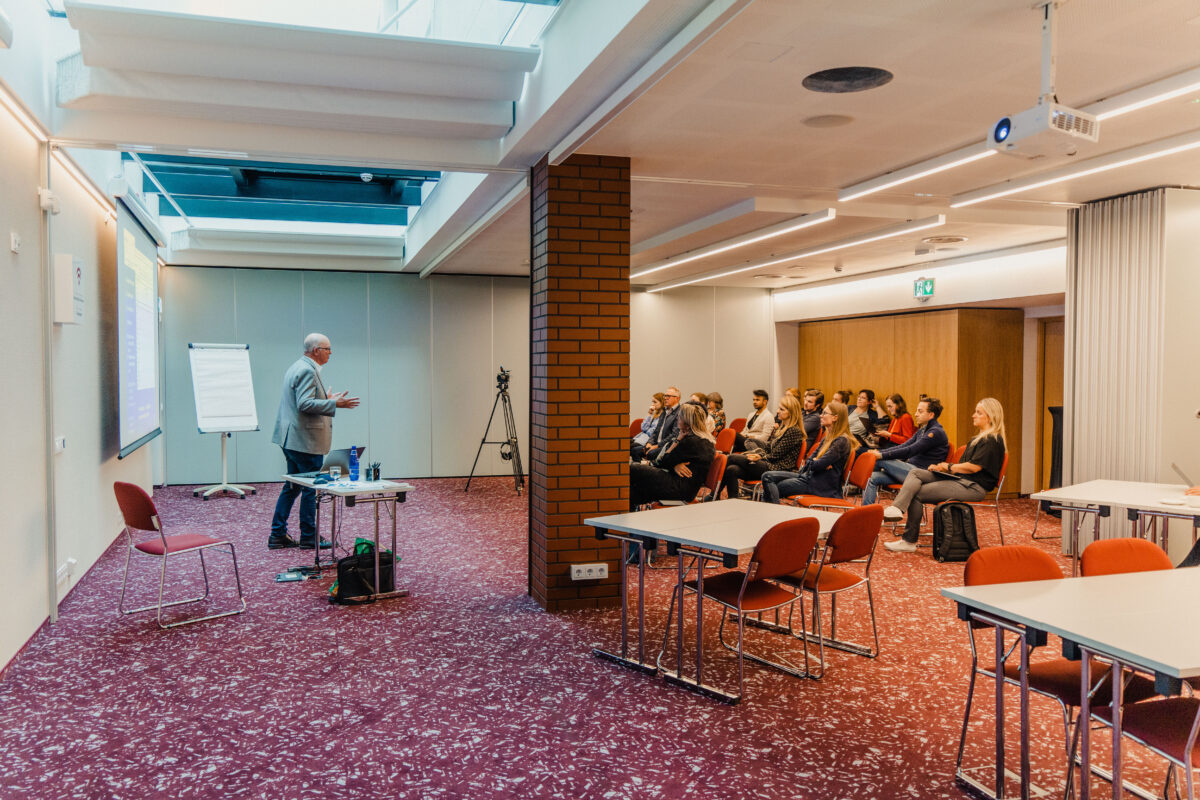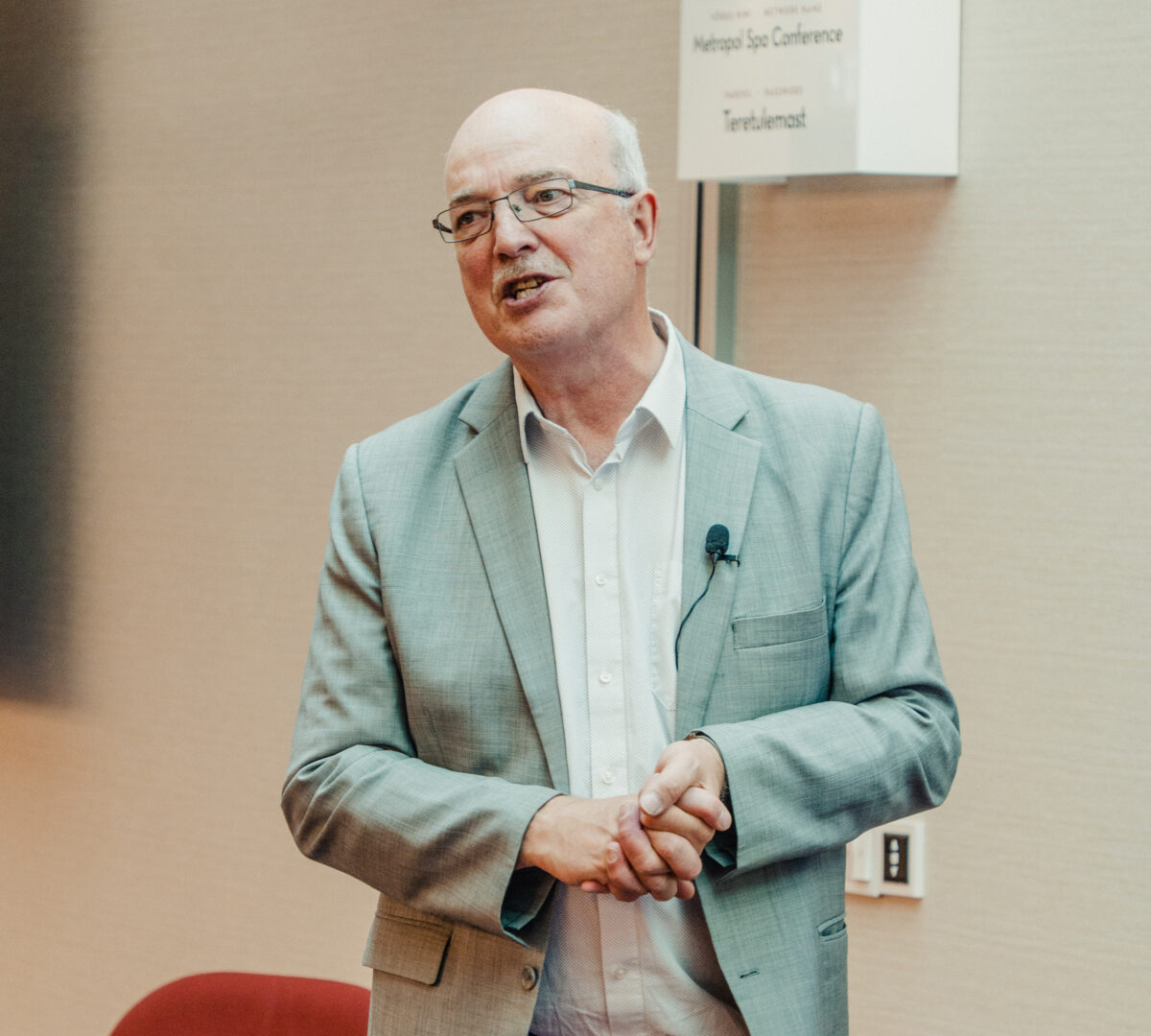Exploring the Future of Food: Novel Food Masterclass with Prof. Hans Verhagen
Imagine stepping into a room filled with the aroma of culinary curiosity and mission driven entrepreneurs and policymakers, where innovative food ideas and regulatory frameworks take center stage. Recently, Estonia’s agri-food innovation network, METK, in collaboration with ÄIO, achieved a significant milestone by co-hosting a thought-provoking Masterclass of Novel Foods in Tallinn. This event marked an important step towards accelerating knowledge-building in the realm of new food authorization.
Novel foods represent a fascinating frontier in the world of food and dietary innovation. These are food products or ingredients that have not been traditionally consumed and are newly introduced to our diets. They encompass a wide range of innovations, including alternative protein sources, innovative food processing techniques, and new plant-based ingredients. Novel foods offer exciting possibilities for expanding our culinary horizons, addressing sustainability challenges, and catering to evolving consumer preferences. By navigating the complex landscape of novel foods, we can unlock new flavors, promote sustainable food systems, and embrace the ever-changing tapestry of our global food culture. However, their introduction into the market often requires careful assessment and regulatory scrutiny to ensure their safety, nutritional value, and compatibility with existing dietary practices.

Novel Food Seminar at Metropol Spa Conference hall, Tallinn. Photo by Accelerate Estonia.
In May 26th, 2023 at Novel Food Masterclass, Tallinn played host to an enlightening seminar led by Hans Verhagen. Dr. Verhagen is a former director of the European Food Safety Authority NDA Panel (EFSA’s Panel on Nutrition, Novel Foods and Food Allergens) and a Senior Scientific Officer, with over 40 years of professional experience in the area of food safety and nutrition. He provided a comprehensive introduction to the world of new food products’ legislation and assessment procedures. Prof. Hans Verhagen (PhD), now a private consultant, captivated the audience with his profound insights into the authorization procedure of novel foods in the EU, USA and beyond. Novel Food Masterclass, co-organised by ÄIO and The Centre of Estonian Rural Research and Knowledge (METK) included a practical workshop exploring EFSA’s case studies on new foods. The seminar delved into the complex interplay between technological advancements, consumer demand, and regulatory oversight that shape the future of our food choices.
Food innovation is driven by a multitude of factors, including scientific discoveries, technological advancements, and changing consumer demands. According to EFSA, “Under EU regulations, any food that was not consumed “significantly” prior to May 1997 is considered to be a novel food“. In today’s context, this stretches from plant-based alternatives and cultured meat to insect-based protein and personalized nutrition. The Novel Food Masterclass shed light on the potential opportunities and challenges associated with these emerging trends from the standpoint of validation and bringing new products to the market.
The assessment procedures for novel food products are often complex, time-consuming, and costly. Companies developing innovative food products must navigate a maze of regulations, safety assessments, and bureaucratic processes, which can act as significant barriers to market entry. This can stifle innovation, discourage investment, and limit consumer access to novel and potentially beneficial food options. Addressing the lagging regulatory barriers requires proactive measures from both regulatory bodies and industry stakeholders. Regulatory frameworks need to be flexible, adaptive, and based on robust scientific evidence, ensuring that safety assessments keep pace with technological advancements. Collaboration between regulatory agencies, industry experts, and scientific communities is vital to streamline processes, harmonize standards, and facilitate innovation while safeguarding consumer health and safety. This is what we are trying to facilitate in our Novel Food project with Accelerate Estonia, the government’s open innovation lab and launchpad for moonshot ideas that create true systemic change.

Prof. Hans Verhagen. Photo by Accelerate Estonia.
In an era where food technology is advancing at an unprecedented pace, seminars like these play a vital role in bringing together experts, policymakers, and food enthusiasts to bridge knowledge gaps and foster collaboration. As the seminar drew to a close, participants were able to book a private meeting with the expert to get inspired and ask questions. To be “the best expert” is to be armed with a newfound appreciation for the complexities involved in introducing novel food products into the EU market.
The enlightening session with Prof. Hans Verhagen showcased Estonia’s commitment to staying at the forefront of food innovation, embracing cutting-edge technologies while prioritizing consumer safety and well-being. This dialogue can help regulators gain insights into emerging technologies and work collaboratively to develop suitable regulations that balance consumer protection with the promotion of innovation.
The Novel Food Seminar was funded by Rural Development Foundation (MES). We thank the co-organisers (METK), and Accelerate Estonia for capturing the event through film and photography. To follow our journey in Novel Food project with Gelatex Technologies, go to Accelerate Estonia’s page. We will share the interview with Hans Verhagen on the project page, shortly.